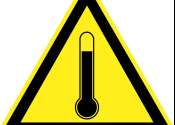Study finds that UV-emitting nail polish dryers damage DNA and cause mutations in cells
The ultraviolet nail polish drying devices used to cure gel manicures may pose more of a public health concern than previously thought. Researchers at the University of California San Diego have studied these ultraviolet ...









